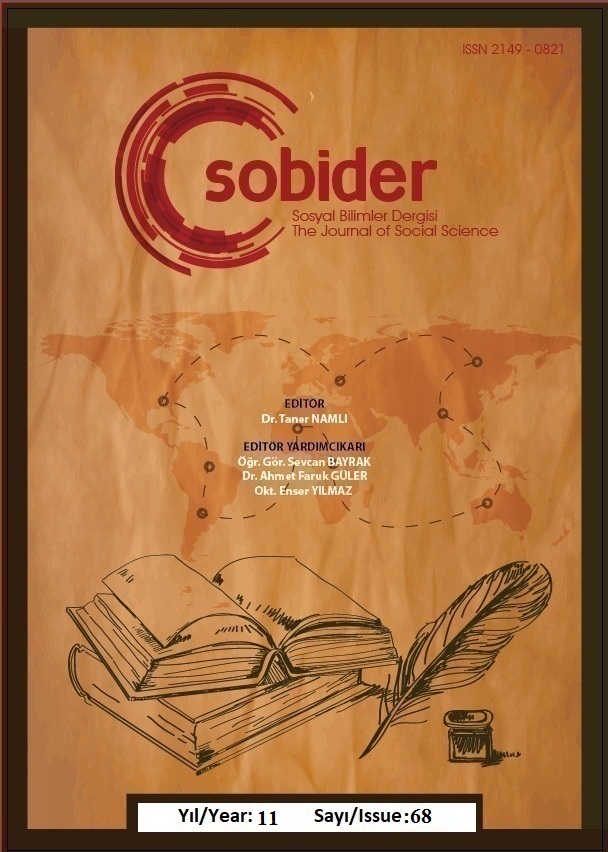Author :
Abstract
İnsanlığa bir rahmet ve hidayet olarak indirilen Kur’ân'ın nüzûl sürecinde coğrafyanın tarihine hükmetmesi ve sonraki dönemlerde tüm teoloji ve düşüncelere karşı dinî hakikat ve hidayetin en güçlü referansı olması, onun salt muʻcizevi beyan özelliğini temellendirmeye çalışan rivayet karekteriyle izah edilebilir mi? Başka bir deyişle, onun gücü yalnızca Kur’ân'ın muhataplarının koşulsuz imanları, tarihsel bilinçleri ve muʻcizevi hitâbıyla açıklanabilir mi? Hz. Peygamber'in vahiy tecrübesi sonrası muhatap evrenin genişlemesi ve farklı dini anlayışların sosyal dokuya dâhil olmaları neticesinde, dini anlamlandırma çabası içerisinde olan tüm kesimlerin ilâhî vahyin hakikat değerini, mensubu olduğu paradigmayı merkeze alarak temellendirme gayreti sonucu farklı tasavvurlar meydana gelmiştir. Bunlardan Kur’ân’ın kutsiyetine yönelik en önemli vurgu, kuşkusuz önceki kutsal kitaplar gibi beşerî etkilere maruz kalmadan korunduğuna yönelik inançtır. Ancak makalede onun rivayet yönünden daha çok burhanî karekteri üzerine yaklaşımlar ele alınacak, kelâmcıların akîde temelinde Kur’ân'ın referans değerini tespitte kullandıkları metodolojik yaklaşımlar tartışılacaktır.
Keywords
Abstract
Can the fact that the Qur'an, which was revealed to humanity as a mercy and guidance, dominated the history of the geography during the process of its revelation and became the most powerful reference of religious truth and guidance against all theologies and religious thoughts in the following periods be explained by its narrative character that tries to justify its miraculous declaration feature? In other words, can its power be explained solely by the unconditional faith of the Qur'an's addressees, their historical awareness and its miraculous address? As a result of the dispansion of the collocutor universe after the Prophet's experience of revelation and the inclusion of different religious understandings in the social fabric, different visions have emerged as a result of the efforts of all segments of the society that are trying to make sense of religion by centering the true value of the revelation by centering on the paradigm to which it belongs. Of these, the most important emphasis on the sanctity of the Qur'an is undoubtedly the belief that it is protected without being exposed to human influences like previous sacred books. However, this article will focus on the approaches to its demonstrative character rather than its narrative aspect.





